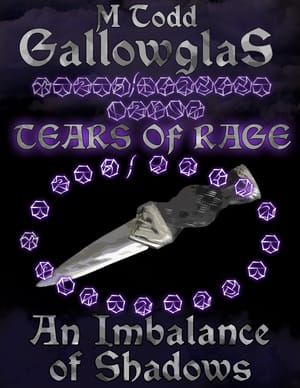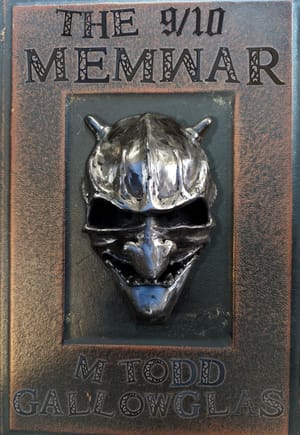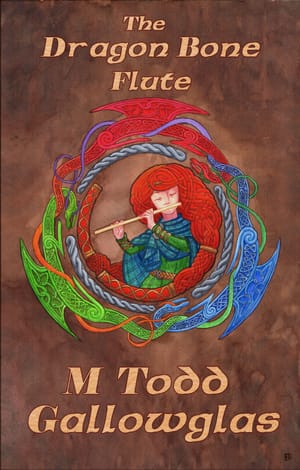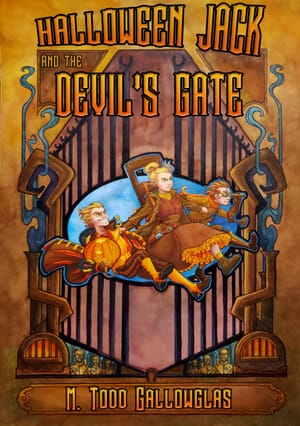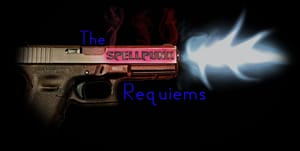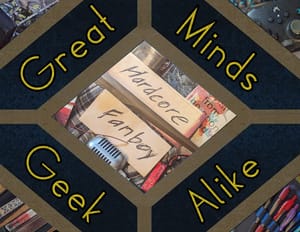You can't handle... the best policy!
In this episode of "Words, Words.... Words," we return to the topic of gaming and the crafting of fiction, and this post looks like it's going to be pretty epic, in length as well as topic. Allow me to warn you right off the bat, part of this post is likely to rise some high emotions in those of you traditional fantasy purists.
One of the problems I see with writers who transition from gaming to fiction, and really, with fantasy writers in general, is they can't portray events that happen to characters with any level of honesty. I can already hear some of the cries of outrage: "But it's fantasy!" "It's not supposed to be honest!" "We're supposed to be escaping from reality." This attitude is most likely the reason the literary world sneers at fantasy even more than romance. I say this because, as a genre, Romance is fairly self away; it collectively understands that it is, for the most part, escapist fluff. Fantasy writers and fans tend to take themselves way too seriously, and while some fantasy is brilliantly written, with poignant social commentary, most of it is, at it's core, escapist fluff. So much to the point that a few writers who have sold millions and millions of books around the world have publicly claimed they don't write fantasy. Yes, Mr. Terry Goodkind and MS. J K Rowling, I am calling you out on my tiny little blog with six followers and less than 350 hits at the time of this post. (I'm sure at least a quarter of those hits are me.) But I digress. I will go into the rage and fury these writers have caused to burn deep in my soul, probably when I'm a little more well known and my saber rattling will get me in a lot more trouble. (I can imagine Robin cringing when she reads this.)
Anyway, back to honesty. So, for the sake of this post, I postulate that reality and honesty are not the same thing. Reality is grounded in the hard, honest fact of the nature of the universe. Honesty is grounded in the truth of human perception, and, much of the time, has very little to do with hard fact. One of the first missions of any writer of fantasy is to create a new reality, a world/universe where the facts of science and nature are different than our own. The more honestly the writer can do this, the more the reader is willing to suspend their disbelief and go a long for the ride.
For those of my readers who have never partaken in the activity of a table-top role playing game, let me paint a picture for you of the ominous figure known as the Game Master, or GM for short. Yes, it's become popular these days for various games to get away from that domineering term, but let's face the truth, that's pretty much what they are. The GM usually sits behind a cardboard screen filled with charts, figures, and reference materials for the game's mechanics. Books, dice, and notes for plots and secondary characters are stacked behind this screen, waiting for that moment when the GM will spring his nasty surprise on his poor hapless players. Actions, happen, dice roll, and... more on that later.
Now, that's not too different from many of the writers that I know. True, the cosmetics of the situation might be a little different. The cardboard screen transforms into a laptop, computer, or typewriter - yes, some people still use those, ask Harlan Ellison. The books might be reference materials, and the notes, well, most every writer has notes. And, you get the idea.
The point is, both the GM and the writer are telling a story. In many cases, they both fail in honesty with the same thing: how they treat the character in that story. I've done it. In gaming and in writing, I've failed at being honest. Almost every GM I've ever known has done it, and the few I'm not absolutely sure of, I'd be willing to put a few bucks down that they have fudged things one way or another. For the GM, the lack of honesty is easy to see. We lie about how our dice roll. See, we have this big cardboard screen in front of us, so the players can't see what our dice say. Most often, I cheat at the dice to keep one of the players from dying, but I also do it to help out the "bad guys" when it seems that the player characters are having too easy a time of things. Other GMs I've known fudge things so that the players get screwed. At a gaming convention, I even saw a fairly well known game designer blatantly kill off a problem player and rip up his character sheet. That's extreme, but it proves the point I'm trying to make: GM's, as a whole, are dishonest people.
Unfortunately, more often than not, writers are too. We get attached to our characters, good and bad. We keep saving them from bad crap that should, in all honesty, happen to them. We are cowards that hide behind a constant stream of little white lies we tell ourselves and our readers, all to be able to sleep at night knowing our characters are safe and sound and to avoid a deluge of hate mail from readers who hate us for what we did to Ned Stark.... Wait.... err. Anyway, the point of that digression is that some writers obviously don't have a problem being honest in their fiction, and while we the readers hate it sometimes, well, as another old saying goes, sometimes the truth hurts.
I have an example of how one single writer single handedly began a large part of this honesty mess in fantasy fiction. This also stems into fantasy role-playing games, because this writer pretty much started both. He didn't mean to, but he did. Some of you are going to argue with me, which is good. Some of you are going to be mad at me; I'm already over it. Really though, it's what I believe, and it needs to be thrown out there, even on a blog with six followers and less than three-hundred fifty hits.
SPOILER ALERT*
In JRR Tolkien's The Lord of the Rings, Frodo should have died in Mount Doom along with Gollum.
Brandon Sanderson, author of Mistborn and the last three volumes of The Wheel of Time gave this reply when I asked him about it:


